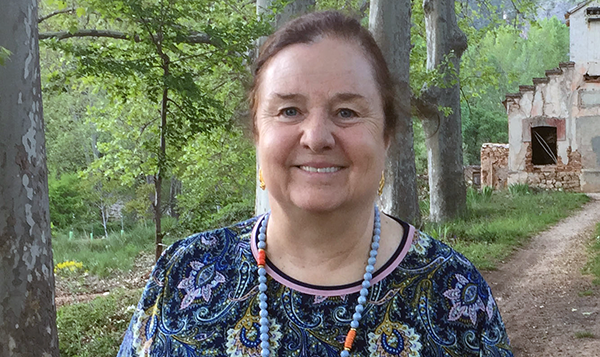Involve people with lived experience in mental health reform

Responding to COVID-19: Interview Series
MHE aims to provide helpful information to as many people as possible on how communities, including experts by experience, service providers, mental health leaders, governments and policy makers, researchers and others, can support people efficiently through the current crisis and beyond.
In this interview series with MHE members and partners, we discuss the impact of the pandemic on their lives and work and which measures they are taking or can be taken to cope with the situation. These testimonies underline the importance of putting mental health higher on the European agenda, during the crisis and afterwards, while offering a personal side and shared expertise for people within the mental health sector, decision makers, and anyone interested in improving mental health for all.
What impact is the current situation having on your life?
It has had and still has a huge impact. In the first place, I had to adapt to a new, traumatic situation. For the first ten days, I was very energetic. I did a lot of new things. For example, exercising, looking after my diet and constantly cleaning my house. Looking back, I think that I was very afraid and a way to deal with this was to keep myself busy. Little by little, things have settled down. I started to have a lack of energy. I was not able to work until last week. I couldn’t concentrate. It was very difficult for me. I would feel down for a day. What happens to me is that every day when I wake up, I think “It’s the same all over again”.
Besides, one of my main concerns was my husband. He works at a TV channel as a producer. He didn’t have enough protection in his job. At the beginning, there were a lot of people in the room with no masks and no protection. I was very scared he would get infected with the coronavirus. I was constantly checking the news so I got overwhelmed. At the beginning, I was very lenient towards the government, but by now I have become more critical.
Are you or members of your organisation currently facing any obstacles in accessing mental health care services or support? If yes, could you describe the main changes since the outbreak of the pandemic?
It has changed dramatically. Of course, nobody can go to mental health services anymore to visit their psychiatrist or psychologist. But I have to say mental health services have given a lot of support by phone, teleconferences etc. So, from my point of view, or my organisation’s point of view, that is working very well. They are highly involved, and it is running very smoothly.
When it comes to inpatient services and people that are in psychiatric hospitals – that has been much more difficult. Many patients had to be moved to other hospitals because all patients of one hospital got infected with coronavirus. Additionally, many patients in institutions have been released. On top of that, digital barriers are a big problem for some people. For them, isolation is terrible. This is a kind of discrimination for them.
In your opinion, what is needed at national and European level to improve the situation for persons with psychosocial disabilities?
In the first place, we need to have a higher budget for mental health. That was agreed in 2005 in the Declaration of Helsinki but nothing has happened for 15 years.
Secondly, this is not only a mental health problem but a social, legal and human rights problem. To give an example: we trained different non-socio sanitarian collectives in Spain and professionals (psychiatrists, psychologists, social workers, etc.) and persons with psychosocial disabilities in Eastern Europe. None of them had ever heard about the UN Convention on the Rights of Persons with Disabilities (UNCRPD). We need political involvement when it comes to mental health and rights of persons with psychosocial disabilities. It needs to be on the agenda of politicians. Thinking that this is a cross-sectoral, multi-dimensional problem, we cannot only talk about health or social support, but we have to start at rights and the UNCRPD because that is a binding convention to everyone who has signed and ratified it. In our view, everything is there. The meaningful involvement of (ex-) users and survivors is not warranted at all.
First, we need to have a louder voice. We are very proud to be involved in the Horizon 2020 project Recover-E. It is the first time that a person with psychosocial disability is involved in a European project (myself). This should be happening on a constant basis. We need to have real participation, and we need to have the possibility to network.
What message of hope could you send to other people that might be going through similar experiences?
We are networking more than ever with our peers. Phone calls, Facebook groups, video conferences etc. Creating this online community has helped us a lot. I believe that after everything ends, we could continue with this mutual respect by digital means and gradually by face-to-face. I feel that we have been stronger than many other people because of our experience with suffering and confinement. We know what it is like to lose our freedom. I’m very optimistic in that sense.
Self-help groups and mutual support have shown that it is the best way to work towards the future. It has been very amazing to find out how everybody is supporting each other and share his or her experience during these hard days.
Stay connected
Get our latest news, personal stories, research articles, and job opportunities.